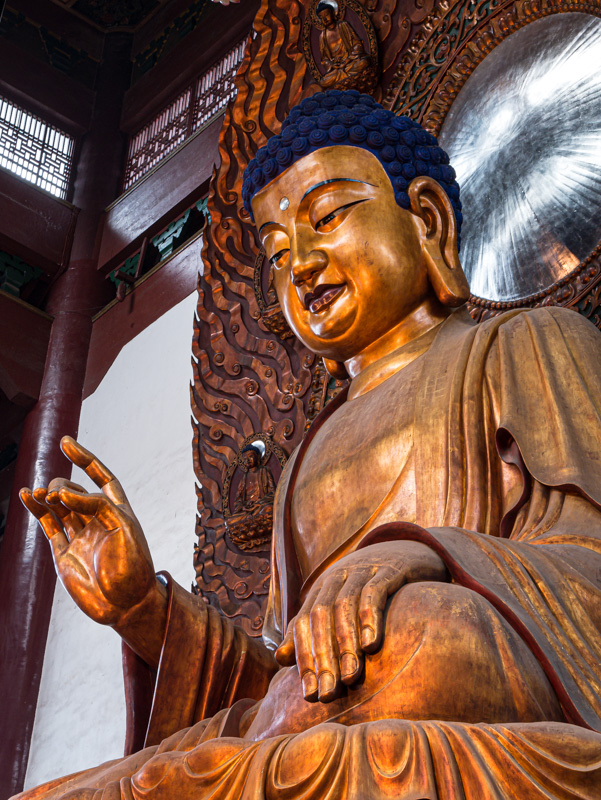Every Picture Is a Compromise
Lessons from the Also-rans
Most photography websites show the photographer's very best work. Wonderful. But that's not the full story of a creative life. If we want to learn, we'd better pay attention to the images that aren't "greatest hits" and see what lessons they have to offer. Every picture is a compromise — the sum of its parts, optical, technical, visual, emotional, and even cosmic – well, maybe not cosmic, but sometimes spiritual. Success on all fronts is rare. It's ok to learn from those that are not our best.
This is a series about my also-rans, some of which I've been able to improve at bit (i.e., "best effort"), none of which I would consider my best. With each there are lessons worth sharing, so I will.
Original digital captureReal-world options:Here is a picture of me in China in 2017, photographing a giant Buddha statue in this dark temple. The snapshot of me is by fellow photographer Dalong Shao who was my guide and protector for the day. Making due with what you have:This is a photograph that should have never worked, well, according to conventional wisdom. It was dark in there; I needed a very deep depth of field to be sure everything was in focus, hence shooting at a diffraction inducing f/13; I didn't want to introduce too much noise, to ultra-high ISOs were out of the question; this meant a quarter second exposure, but I had no tripod. As I say, according to conventional wisdom, this should have been a failure all the way. What I learned:
What I learned:Opinions by experts about what you can do and should not do aren't always the infallible authorities we might guess. You can probably do a lot more with your camera than you think. |


